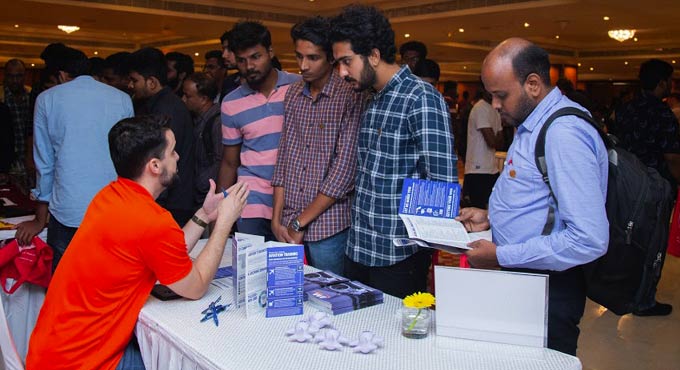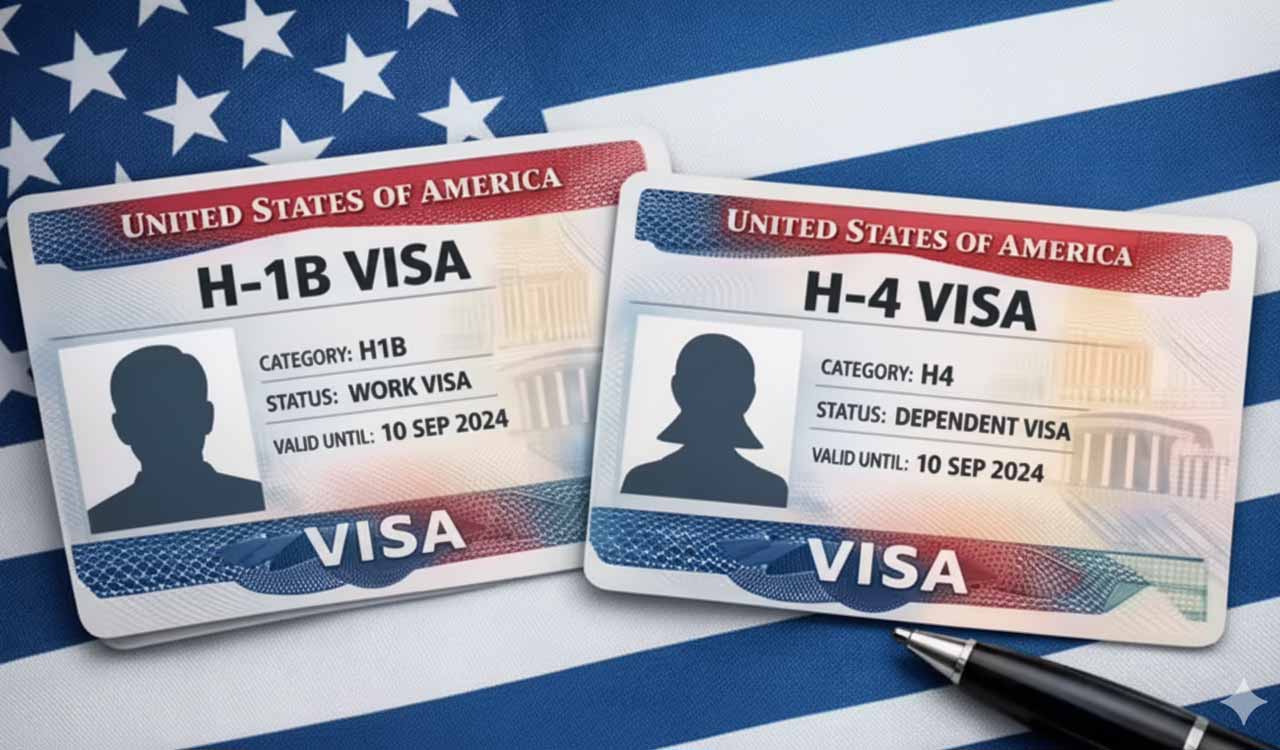All that goes into applying for US edu programmes
Today, we will continue to talk about education programmes at US universities. Last week, we discussed the interdisciplinary nature of the field of education, with the availability of various specialisations at both the undergraduate and graduate levels in the United States. The column last week also talked about the available degree programmes related to the […]

Today, we will continue to talk about education programmes at US universities.
Last week, we discussed the interdisciplinary nature of the field of education, with the availability of various specialisations at both the undergraduate and graduate levels in the United States. The column last week also talked about the available degree programmes related to the subject, including B.A. or B.S. (both undergraduate) and M.Ed./Ed.M., Ph.D., or Ed.D. (all graduate level).
This week we will talk about the application process for education programmes and what to keep in mind while developing your shortlist.
At the undergraduate level, universities accept the relevant online application (Common App, etc.), essays, reference letters, official transcripts, SAT score (if required by the university), and English proficiency (TOEFL/IELTS/PTE). The application for graduate-level education programmes typically involves an online application along with a statement of purpose or essay, letters of recommendation, transcripts, GRE scores, and English proficiency (TOEFL/IELTS/PTE). Many M.Ed. programmes do not require a GRE score. Students should check all application requirements at their shortlisted universities before sending their application. The application deadlines are like regular deadlines of other programmes of study, but if a student wants to be considered for funding support, they should submit their applications early.
Students should carefully check the availability of their desired major or specialisation at a university before shortlisting the institution. Also, for students applying for a research-focused programme at the graduate level (master’s or Ph.D), it is important to explore the research interest of the faculty in the department.
While selecting a programme of study or institution, in addition to researching regionally accredited colleges and universities that offer study in education, prospective students may identify academic programmes with professional accreditation. This is especially relevant since, after completion of a programme, students generally seek licensure or certification from the State in which they want to practise. The professional accrediting organisation for the field of education is the Council for the Accreditation of Educator Preparation or CAEP (www.caepnet.org). Students should also find out if a course or university is accredited by visiting the database of accredited programmes and institutions published by the US Department of Education at https://ope.ed.gov/dapip/#/home or the Department of Homeland Security at https://studyinthestates.dhs.gov/school-search.
Students may visit the websites of associations and organisations that are affiliated with the study of education to further understand the field:
• American Association of Colleges for Teacher Education, www.aacte.org
• National Council of Teachers of English, www.ncte.org
• National Education Association, www.nea.org
• National Association for the Education of Young Children, www.naeyc.org
• National Association of Special Education Teaching, www.naset.org
• TESOL International Association, www.tesol.org
Monika Setia (Regional Officer and EducationUSA Adviser at the US-India Educational Foundation based at the US Consulate General Hyderabad)
Q&A
Q1. I want to apply for Ph.D. programmes in the US. When is the right time to apply?
– Ashfaq Hussain
It is during the first semester of the final year of the master’s programme, if you plan to start the programme right after the master’s. The application process to Ph.D. programmes at US universities involves an online application, standardised test (GRE/GMAT) and English proficiency scores, transcripts, statement of purpose (SOP), letters of recommendation, curriculum vitae or resume, and financial documents. Taking the standardised tests and putting together all application components is a long process. So, 1-2 years in advance of the start date of the Ph.D. programme is a good time for candidates to start planning for the American Ph.D. degree application. Applicants should also check the dates available for the standardised and English proficiency tests, as not all of these tests are offered year-round and each test has limited seats available.
Q2. I am applying for master’s programmes for Fall 2021. What documents should I prepare for proof of finances?
– Kavita Reddy
Most colleges and universities in the US include a form called a Declaration and Certification of Finances or Affidavit of Financial Support in their application packets. This must be signed by your parents or whoever is paying your college expenses and must be certified by a bank or lawyer. Keep a copy of this form since you will also need it to apply for your student visa. Schools usually need to know that you have at least the first year’s expenses covered, although many may also ask you to indicate your source of income for the entire period of study.
If you know when you apply that you will need some form of assistance from the college, indicate how much you plan to request from the university. Do not wait until you have been accepted into a university to request assistance, as it will be too late in most instances. Please note that the university will issue the relevant certificate of eligibility for a student visa only if you are able to fully document your source(s) of income.
Now you can get handpicked stories from Telangana Today on Telegram everyday. Click the link to subscribe.
Click to follow Telangana Today Facebook page and Twitter .
Related News
-
Iran warns of ‘decisive’ response if subjected to military aggression
-
India wedded to strategic autonomy: EAM Jaishankar amid US claims on Russian oil buys
-
More trouble brewing for Indians in US; Bill introduced to scrap H-1B visa program
-
Moscow believes it can outsmart US in Ukraine peace talks: Estonia
-
India rejects ‘Third Category’ in UNSC, calls it a delay tactic
7 mins ago -
Investing made simple: Why you need a trading app and demat account
16 mins ago -
KTR condemns Youth Congress protest at AI Summit 2026 in New Delhi
45 mins ago -
Forest official booked for teak timber smuggling in Kumram Bheem Asifabad
55 mins ago -
Rahul Gandhi furnishes new surety in Bhiwandi court in RSS defamation case
1 hour ago -
Delhi on high alert: Security tightened at Red Fort, religious sites after terror threat inputs
1 hour ago -
Cartoon Today on February 21, 2026
2 hours ago -
Mobile phones destroyed in fire in store in Kukatpally
2 hours ago




